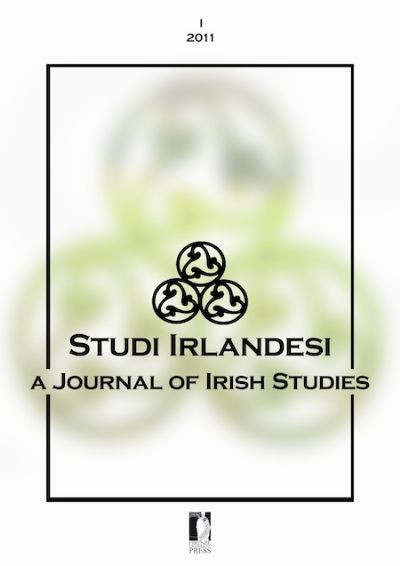Guest editor, Loredana Salis (Università di Sassari)
With over 70 million living outside the island of Ireland, the Irish are today one of the largest diaspora communities in the world. Their influence on contemporary Ireland can hardly be overstated: central to topical facts and fictions, the Irish diaspora prompts questions on a variety of aspects to which the 9th issue of Studi Irlandesi. A Journal of Irish Studies is dedicated. Aiming for a multidisciplinary and interdisciplinary approach, the present call encourages contributions that engage with, reflect on and give prominence to narratives of homeland from “the diverse array of people throughout the world for whom Ireland is a place of origin”.
Among the first to speak of an “Irish diaspora” was President Mary Robinson, in 1996. In an address to the Chicago Council on Foreign Relations, Robinson referred to the “awareness that the painful pattern of emigration has resulted ironically in a vibrant resource which should be included into a modern (i.e. broader) sense of Irishness”, beyond territoriality. Echoing art. 2 of the Irish Constitution, the President’s speech promoted a new way of looking at Ireland’s past, incontrovertibly traumatic yet not exclusive to the Irish, ultimately (indeed ironically) functional to the country’s booming economy of the Celtic Tiger years.
Since then, “the Irish diaspora” has become the object and subject of innovative and influential academic research committed to new historical surveys, investigations of patterns of migration and their legacy, explorations of diaspora discourse and fields of articulation in the public sphere. Mindful of migration as a collective phenomenon that somehow still represents a scar, if not an open wound, the bulk of scholarly work available on the theme succeeds in locating that experience within a wider conceptual framework and a globalised context. While rooting and routing (Clifford 1994) the dispersal of the Irish community across the globe, these studies reassess diaspora as an empowering and liberating force (eg. effecting community cohesion, enfranchisement for women, etc…). A new understanding of diaspora in these terms has proved fruitful, plausibly leading to the creation, in 2014, of a dedicated Ministry of State, and the launch of best practices such as the Global Irish Diaspora Strategy and the Global Irish Civic Forum, which consider diaspora both as a process (entailing relocation, connection and return), and an idea “through which people seek to make sense of the experience of emigration” (Kenny 2017)
Today, narratives of and from the Irish diaspora testify the complexities and tensions, the fragility and potentialities of people “permanently in transit” (Morrissy 2016), who long for a sense of home, away from an ancestral home. Their voices resound in the work of creative writers, scholars and activists, featuring public and political debates and capturing readers’ attention at times of important anniversaries and within a few months from the endorsement of the Brexit. To them we aim to listen and pay due attention.
Fields of investigation and topics may include:
- literature and the arts;
- digital media and new technologies;
- cultural heritages (eg.: sports, food, music, religion, traditions etc…);
- eco-criticism;
- freedom, migration, diaspora;
- gender;
- history, memory and the emotions (nostalgia; pride; longing and belonging;spirituality);
- the semantics of the Irish diaspora;
- law / politics / economics and the Irish diaspora.Deadline:
Please send abstracts of 250 to 400 words, as well as a short biography of 50 to 100 words, by 15th October 2018 to the Guest Editor, Loredana Salis (lsalis@uniss.it) and to the General Editor, Fiorenzo Fantaccini (ffantaccini@unifi.it).
Submissions accepted for publications will be announced by the end of October 2018. Finalized contributions for submission to referees must reach the editors by 1st March 2019: Articles must be formatted in accordance with the journal editorial guidelines <http://www.fupress.net/public/journals/37/sijis_guidelines.pdf> and should not exceed 12000 words, including endnotes and bibliography. Informal enquiries to the Guest editor and General Editor are welcome and should be addressed to the contacts above.
The 9th issue of Studi irlandesi. A Journal of Irish Studies will be published in June 2019.

